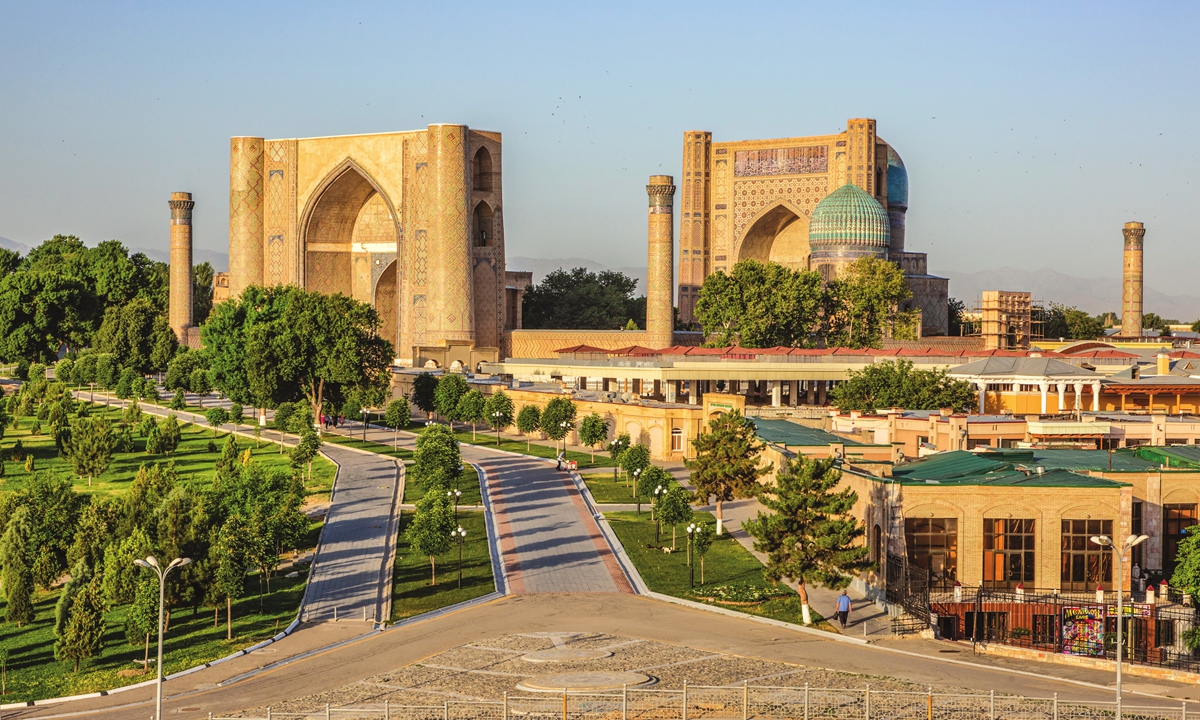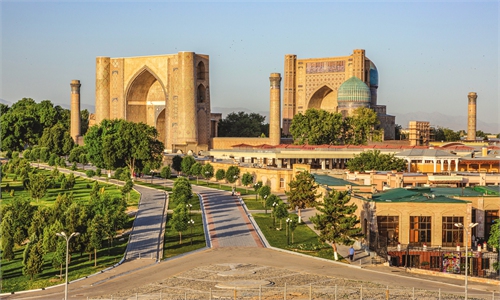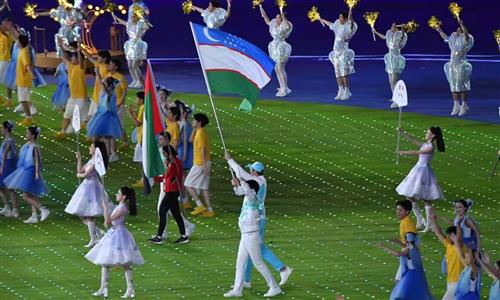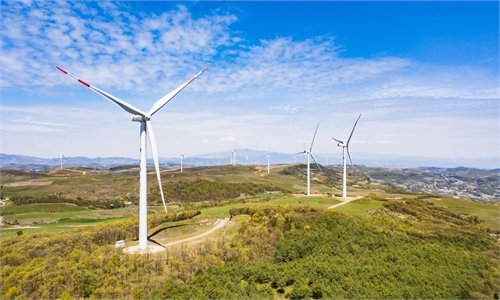ARTS / CULTURE & LEISURE
Central Asia trip to embrace cultural exchange consensus
High-ranking Chinese delegation visits Uzbekistan

A glimpse of Samarkand in southeastern Uzbekistan Photo: VCG
Led by Hu Heping, China's minister of Culture and Tourism, a high-ranking Chinese delegation recently arrived in Uzbekistan to deepen the cultural exchanges between the two countries by raising subjects such as tourism collaboration, archaeology and so forth.The visit was organized by the two countries amid the 10th anniversary of the Belt and Road Initiative (BRI) in 2023. The Chinese delegation was greeted by high-level officials in Uzbekistan such as Tanzila Norbaeva, chairperson of the Senate of Uzbekistan; Ozodbek Nazarbekov, minister of Culture and Tourism; and also Aziz Abdukhakimov, minister of Ecology, Environmental Protection and Climate Change.
In a meeting with Hu, Norbaeva reinforced the importance of the two countries' collaboration in archaeology and restoration of cultural relics. She also emphasized that more paths needed to be explored in order to cultivate cross-cultural talents in these fields.
Historian Fang Gang told the Global Times that archaeology has always played a major role in promoting mutual learning between China and Uzbekistan. The field has delved into "the two countries' cultural integration along the ancient Silk Road," Fang said, adding that the historical importance of this Silk Road story is now being continued with the BRI.
China and Uzbekistan's joint Silk Road exploration did not start recently. Ten years ago, Wang Jianxin, the first Chinese archaeologist to conduct research in Central Asia, worked with the Institute of Archaeology of the Uzbekistan Academy of Sciences to not only expand his Yuezhi Culture studies but also amend the world's understanding of the Silk Road.
Wang told the Global Times that with the contributions of Chinese and Uzbekistan scholars, his team was able to challenge "academia's Western centralized interpretations of the Silk Road." He said that projects like his could raise China's cultural discourse power on the international stage.
During the recent meeting, artistic exchanges between China and Uzbekistan was a specific subject brought up by several officials. Its related issues were discussed, including how China has helped Uzbekistan to develop its own cultural and artistic legislation, establishing an arts center and promoting overseas art performances.
Proposed by Uzbekistan's President Shavkat Mirziyoyev, a major cultural gala focusing on the exchanges of culture and art between the peoples of China and Central Asia opened in May in Xi'an, Northwest China's Shaanxi Province.
Cultural industry critic Yao Yu told the Global Times that the gala is an official platform established to allow diverse and regularly scheduled cultural events to be carried out.
Treating tourism as an important part of China-Uzbekistan's "comprehensive strategic partnership," Hu has exchanged views with Abdukhakimov and Zurab Pololikashvili, head of the World Tourism Organization (UNWTO), on promoting the exchange of tourism resources.
Hu noted that with the support of the BRI, more tourism products and routes will be designed to boost the industry in the two countries. Abdukhakimov has also expressed his gratitude to China for listing Uzbekistan as a pilot country for group tourism for Chinese citizens.
Following a visa-free short-term travel policy that Uzbekistan established for Chinese tourists in 2020, the country's capital city Tashkent has become a hot tourist destination for Chinese visitors. On Chinese social media sites like Sina Weibo and The Little Red Book, "Tashkent City Walk" has become a hot topic discussed by netizens.
Yao told the Global Times that beside national-level events, people-to-people exchanges can also bring the two countries closer.
The meeting between high-level officials is not the only event that has enhanced the firm cooperation between the two countries in 2023. In May, President Shavkat Mirziyoyev of Uzbekistan greeted Chinese President Xi Jinping during the China-Central Asia Summit.
Xi has pointed out that the two sides need to expand cooperation in economy, trade and investment, advance connectivity, expand cooperation in energy and healthcare, and actively carry out sub-national as well as people-to-people and cultural exchanges and cooperation, and exchanges and cooperation in poverty alleviation.
These common goals were also powered by a Joint Statement between China and Uzbekistan signed by leaders of the two countries. The document approves a plan for the development of the comprehensive strategic partnership in the new era between China and Uzbekistan.



